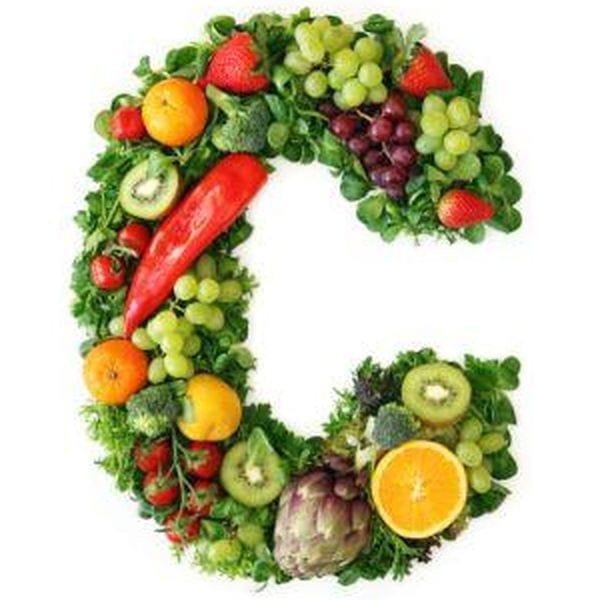Vitamin C is usually associated with our immune system, which is absolutely correct, however, this vitamin is involved in over 300 biological processes in the body.
WHAT TYPE OF VITAMIN IS IT?
Vitamin C or Ascorbic Acid is water-soluble and therefore, like the B vitamins we have already covered, it cannot be stored in the body. It therefore needs to be taken in through our food on a daily basis. It is, in fact, the body?s most powerful water-soluble antioxidant and plays a vital role in protecting the body against oxidative damage from free radicals.
It works by neutralising potentially harmful reactions in the water-based parts of our body, such as the blood and within the fluids surrounding every cell. It helps prevent harmful cholesterol (LDL) from free radical damage, which can lead to plaque forming on the inside of arteries, blocking them. The antioxidant action protects the health or the heart, the brain and many other bodily tissues.
HOW DOES IT WORK WITH OUR IMMUNE SYSTEMS?
Eating foods rich in Vitamin C boosts our immune system. It works by increasing the production of our white blood cells that make up our defence system, in particular B and T cells. It also increases levels of interferon and antibody responses improving antibacterial and anti viral effects. The overall effect is improved resistance to infection and it may also reduce the duration of the symptoms of colds for example. It may do this by reducing the blood levels of histamine, which has triggered the tissue inflammation and caused a runny nose. It has not been proven scientifically but certainly taking in vitamin C in the form of fruit and vegetable juices is not going to be harmful. Another affect may be protective as it prevents oxidative damage to the cells and tissues that occur when cells are fighting off infection.
WHAT ARE SOME OF THE OTHER PROCESSES THAT VITAMIN C IS INVOLVED IN?
We obviously can?t cover them all but here are some highlights of this very important Vitamin:
It plays a part, along with the B vitamins we have already covered, in the conversion of tryptophan to serotonin, a neurotransmitter in the brain that helps determine our emotional well being.
Collagen is the protein that forms the basis of our connective tissue that is the most abundant tissue in the body. It glues cells together, supports and protects our organs, blood vessels, joints and muscles and also forms a major part of our skin, tendons, ligaments, corneas of the eye, cartilage, teeth and bone. Collagen also promotes healing of wounds, fractures and bruises. It is the degeneration of our collagen that leads to external signs of ageing such as wrinkles and sagging skin. There is a similar affect internally that can lead to degenerative diseases such as arthritis. Vitamin C is vital for the manufacture of collagen and is why taking in healthy amounts in your diet can combat the signs of ageing.
Our hormones require Vitamin C for the synthesis of hormones by the adrenal glands. These glands are situated above each kidney and are responsible for excreting the steroid hormones. The most important of these are aldosterone and cortisol. Cortisol regulates carbohydrate, protein and fat metabolism. Aldosterone regulates water and salt balance in the body and the other steroid hormones, of which there are 30, help counteract allergies, inflammation and other metabolic processes that are absolutely essential to life.
TAKING VITAMIN C IS ALSO GOOD FOR OUR HEART ISN?T IT?
The cardiovascular system relies on Vitamin C that plays a role in cholesterol production in the liver and in the conversion of cholesterol into bile acids for excretion from the body. The vitamin also promotes normal total blood cholesterol and LDL (lousy cholesterol levels) and raises the levels of the more beneficial HDL (Healthy cholesterol) It supports healthy circulation and blood pressure, which in turn supports the heart.
The other area that Vitamin C has shown it might be helpful to the body is in the lungs – reducing breathing difficulties and improving lung and white blood cell function. It is recommended that smokers take Vitamin C, not just in their diet? but also as supplementation. Exposure to cigarette smoke may severely deplete the presence of Vitamin C in the lungs leading to cell damage.
Many studies are showing that Vitamin C can protect the health of the eye by possibly reducing ultra-violet damage. The vitamin is very concentrated in the lenses of the normal eye, which can contain up to 60 times more vitamin C than our blood. Damaged lenses appear to have a much lower amount of vitamin C which indicates that there is not sufficient to protect the lens from the effects of free radicals, or support the enzymes in the lens that normally removed damaged cells.
Research is ongoing with Vitamin C and certainly in the fight against cancer there are some interesting developments.
Vitamin C works as part of a team helping in various metabolic processes such as the absorption of iron, converting folic acid to an active state, protecting against the effects of toxic effects of cadmium, copper, cobalt and mercury (brain health).
One word of warning if you are on the contraceptive pill. Vitamin C in large supplemental doses can interfere with the absorption of the pill and reduce its effectiveness.
WHAT ARE THE SIGNS OF DEFICIENCY OF VITAMIN C?
A total deficiency is extremely rare in the western World. A total lack of the vitamin leads to scurvy, which was responsible for thousands of deaths at sea from the middle ages well into the 19th century. Some voyages to the pacific resulted in a loss of as much as 75% of the crew. The symptoms were due to the degeneration of collagen that lead to broken blood vessels, bleeding gums, loose teeth, joint pains and dry scaly skin. Other symptoms were weakness, fluid retention, depression and anaemia. You can link these symptoms back up to the benefits of vitamin C and understand how many parts and processes of the body this vitamin is involved in.
In a milder form a deficiency has also been linked to increased infections, male infertility, rheumatoid arthritis and gastrointestinal disorders.
The best food source of vitamin C is all fresh, raw fruit and vegetables. Avoid buying prepared peeled and cut vegetables and fruit, as they will have lost the majority of their vitamin C. If you prepare juices at home, always drink within a few hours preferably immediately. Do not boil fruit and vegetables, it is better to eat raw whenever possible preserving all their nutrient content, but at the very least only steam lightly.
Researchers believe that taking in adequate amounts of Vitamin C is the best private health insurance that you can take out.
The best food sources are, of course, fresh fruit and vegetables but the highest concentrations are in black-currants, broccoli, brussels sprouts, cabbage, cauliflower, cherries, grapefruits, guavas, kiwi fruit, lemons, oranges, parsley, peppers, rose-hips, potatoes, tomatoes and watercress.






Leave a comment